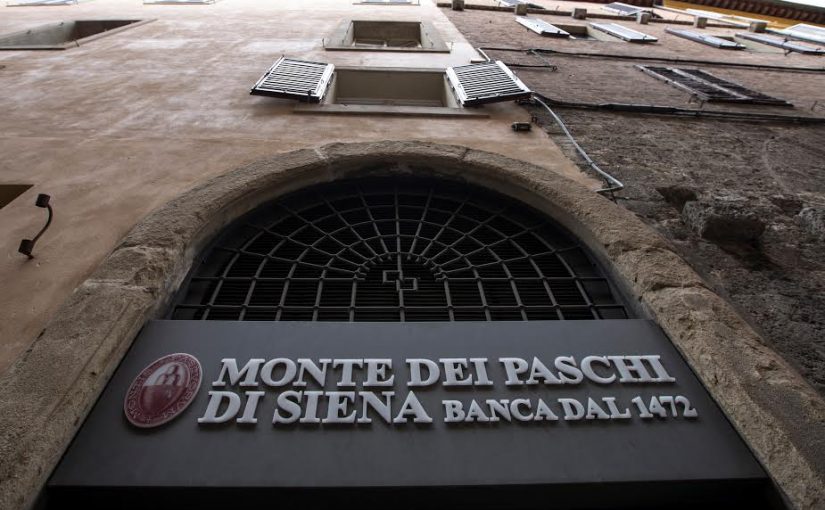Attorney-General: Mozambique's GIFiM to join Egmont Group
Moza Banco was bailed-out because no one could bail-in – By Levy Sergio Mutemba

New Europe / Like Moza Banco in Mozambique, Banca Montei dei Paschi di Siena is one the most troubled banks in Italy. The European government may have to bail-out the bank in spite of the new rules limiting public bail-outs.
In a strained economy where public mismanagement had already led Mozambique to collapse, it is no wonder that the recapitalisation of Moza Banco by the central bank’s pension fund money generates controversy. Some analysts talk about conflicting interests while others put into question the very intervention of a public body that saves a private bank at the expense of taxpayers.
Bank recapitalisation is controversial everywhere, not just in Mozambique. Europe is faced with the same dilemma, as was revealed in a report on the Italian fragile banking sector published last week by rating agency S&P Global Ratings.
Three Italian banks display patent signs of fragility and have reached the Point of Non Viability (PONV), that is, the moment when authorities would impose losses on a bank’s regulatory capital instruments and probably initiate a resolution.
A resolution (or bail-in) implies the often limited firepower of the private sector as the main source of a bank’s recapitalisation process, as opposed to bail-outs where pubic authorities would directly intervene with taxpayers’ money. S&P Global Ratings recalls indeed that governments introduced resolution powers following the global financial crisis to ensure that creditors, not taxpayers, suffer the costs of bank failures.
“However, the potential government recapitalisation of three struggling Italian lenders raises questions over whether European authorities have the appetite to bail-in rather than bail-out”, write analysts from the rating agency.
To maintain financial stability, Irish and Spanish banks had received government bailouts several years ago and Eurozone members appear prepared to push the boundaries of resolution laws to enable a similar outcome in Italy and potentially elsewhere.
“Although resolution legislation is now in force, we consider that banks are not yet truly resolvable in practice, which currently limits authorities’ options when dealing with struggling banks”, thinks S&P Global Ratings. The rating agency also acknowledges that the resolution of a systemically important bank is untested and that government support remains, for now at least, the most certain way to preserve financial stability in a systematic crisis.
Thus, Banco Moza recapitalisation is not a scandal in itself. Instead, what seems more debatable is the level of the pension fund manager Kuhanha’s participation in the bank (which now amounts to more than 80% of the bank’s capital). Usually, Government-related agencies such as public pension funds only take a minimal stake in systemically important banks and companies, constrained in that by the principle of diversification (not to put all eggs in the same basket).
In the case of Moza Banco, it seems, Kuhanha’s exposure to the bank may seem excessive. Any other possible liquidity crisis or bankruptcy on the part of Moza Bano can have significant consequences for Kuhanha, which must ensure a stable stream of returns from its investments. Future will tell…
In the meantime, another key issue is whether or not a foreign private investor was willing to take over the Mozambican financial services group. Such an option would have been de facto a resolution-based approach and not a bail-out. In the past, rumours of such intervention were massively conveyed in the local press but were never confirmed.
However, the state of panic with which the central bank described the Moza Banco situation when it took control of it a few months ago suggests that the private sector would not have been enthusiastic at the idea of retaking the bank.
Finally, while the Bank of Mozambique stresses the fact that the absence of bail-out would have resulted in deep systemic negative effects for the economy, one can still share the (liberal) view that letting banks go bankrupt may have the potential force the sector and the government to police itself in a more sustainable way, in spite of the short or medium term impact on the economy.
By Levy Sergio Mutemba













Leave a Reply
Be the First to Comment!
You must be logged in to post a comment.
You must be logged in to post a comment.